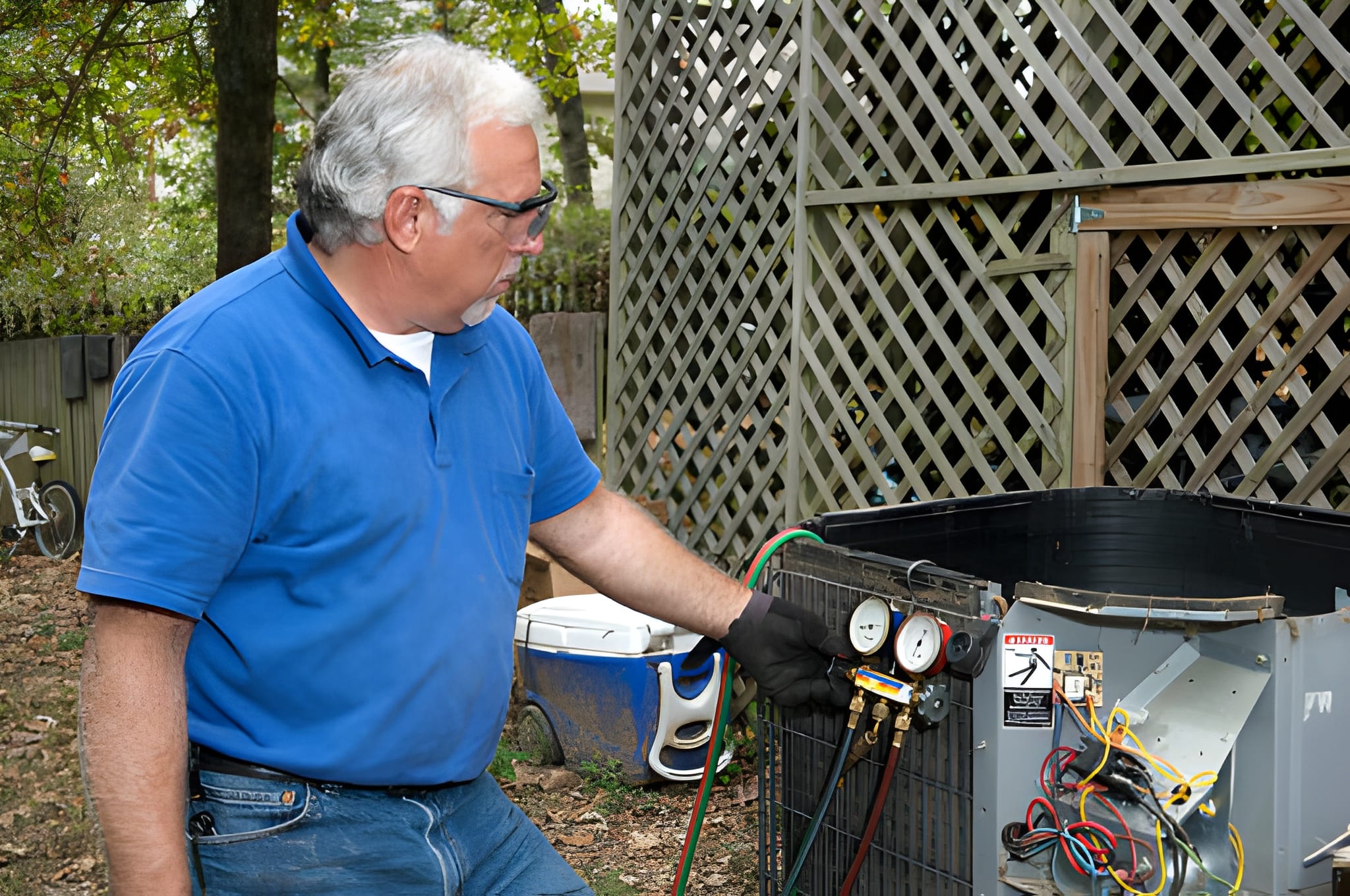AC Tune-Up in Richland Hills, TX
Keeping your air conditioning running reliably and efficiently is essential in Richland Hills, TX. Long, hot summers, seasonal humidity, and frequent pollen and dust load mean systems work harder here than in milder climates. A professional air conditioning Tune-Up identifies small problems before they become breakdowns, restores peak efficiency, and helps preserve manufacturer warranties and system life.

Why a Tune-Up matters in Richland Hills homes
- Richland Hills sees extended cooling seasons, which increases wear on compressors, motors, and controls.
- Humidity accelerates coil corrosion and promotes mold growth on evaporator coils and drain lines.
- Spring pollen, summer dust, and construction debris in the DFW area clog filters and coils, reducing airflow and efficiency.
A thorough Tune-Up reduces the risk of mid-summer failures, lowers energy bills, and maintains indoor comfort.
What a standard air conditioning Tune-Up includes
A complete Tune-Up follows an industry-standard checklist to evaluate safety, performance, and system cleanliness. Typical tasks include:
- Visual inspection of indoor and outdoor units for physical damage, leaks, and pest intrusion.
- Air filter inspection and recommendations for replacement or cleaning.
- Evaporator coil and condenser coil cleaning to restore heat transfer.
- Condensate drain inspection and clearing to prevent water damage and microbial growth.
- Refrigerant level check and leak assessment to ensure proper charge and cooling capacity.
- Electrical component inspection and tightening: contactors, relays, capacitors, wiring, and breakers.
- Motor lubrication where applicable and inspection of belt-driven components.
- Thermostat calibration and control checks for accurate temperature control.
- Safety and performance tests: compressor amperage, system pressures, superheat/subcooling (when applicable), and airflow measurements.
- Outdoor unit cleanup and condenser area clearance to ensure unobstructed airflow.
- Summary report with condition notes, recommended repairs, and expected performance improvements.
Diagnostic process: what technicians look for
Technicians use both visual checks and instrument readings to diagnose issues:
- Airflow problems: measured with static pressure or temperature split to detect restricted ducts, dirty coils, or failing blowers.
- Refrigerant issues: pressure readings and temperature differentials identify undercharge, overcharge, or leaks.
- Electrical faults: voltage and current tests catch failing capacitors, bad contactors, or unsafe wiring that can lead to system failure.
- Component wear: compressors, fan motors, and belts are assessed for signs of impending failure.
- Drain and indoor air quality risks: clogged drains and mold on coils are identified and remediated to prevent water damage and poor indoor air.
Common Tune-Up issues in Richland Hills and solutions
- Dirty condenser and evaporator coils: cleaning improves cooling capacity and reduces runtime.
- Low refrigerant or leaks: locating and repairing leaks, then restoring proper refrigerant levels.
- Clogged drains: clearing and flushing the condensate line to prevent backups and overflow.
- Worn capacitors or contactors: replacing failing electrical parts that cause hard starts or intermittent cooling.
- Restricted airflow from dirty filters or ducts: filter replacement and duct inspection to restore proper airflow.
- Thermostat inaccuracies: recalibration or replacement for precise control and reduced cycling.
How Tune-Ups prevent breakdowns and protect warranties
- Early detection: routine inspections find failing parts before they cause a system shutdown during peak demand.
- Manufacturer requirements: many HVAC warranties require documented annual maintenance to remain valid; a professional Tune-Up provides that documentation.
- Efficiency preservation: clean coils, correct refrigerant charge, and proper airflow keep the system operating near original efficiency, reducing compressor strain.
- Safety checks: identifying electrical hazards and refrigerant leaks protects your home and reduces the chance of costly emergency repairs.
Energy-savings and performance expectations
A properly executed Tune-Up typically reduces runtime and improves efficiency by restoring optimal heat transfer and airflow. In practical terms this can mean:
- Shorter run times to reach set temperatures.
- More consistent indoor comfort with fewer hot or cold spots.
- Lower energy use from reduced compressor cycling and improved fan performance.
Many service providers support Tune-Ups with energy-savings guarantees or performance commitments; these guarantees usually specify conditions and measurement methods for expected savings.
Recommended timing for Tune-Ups in Richland Hills
- Spring cooling Tune-Up: ideal in March through May. Preparing before sustained cooling loads prevents early-season failures and helps identify winter-related issues.
- Fall heating Tune-Up: if you have a heat pump or combined system, schedule a check in September through November to prepare for seasonal transitions.
- Frequency: annual preventive maintenance is recommended for most home systems; high-use systems or older units may benefit from twice-yearly checks.
What a homeowner should expect after a Tune-Up
- A clear report listing everything inspected, test results, and any recommended repairs or part replacements.
- Improved cooling performance and more consistent indoor temperatures.
- Reduced likelihood of emergency repairs during the hottest months.
- Documentation suitable for warranty compliance and future service records.
Maintenance tips to extend system life between Tune-Ups
- Change or clean filters every 1 to 3 months during heavy use to preserve airflow.
- Keep the outdoor condenser clear of debris, grass clippings, and vegetation; maintain at least 2 feet of clearance.
- Monitor unusual noises, higher-than-normal energy bills, or reduced airflow and schedule a check if you notice changes.
- Use a programmable or smart thermostat to minimize unnecessary runtime and reduce system strain.
An air conditioning Tune-Up in Richland Hills, TX is a practical investment that reduces the risk of mid-summer breakdowns, preserves efficiency, and helps keep manufacturer warranties intact. With Richland Hills climate factors like prolonged heat, humidity, and seasonal pollen, annual professional maintenance is the best way to ensure dependable comfort, lower operating costs, and longer equipment life.

Flexible Financing Options
Explore our range of flexible financing options designed to suit your needs and budget.













